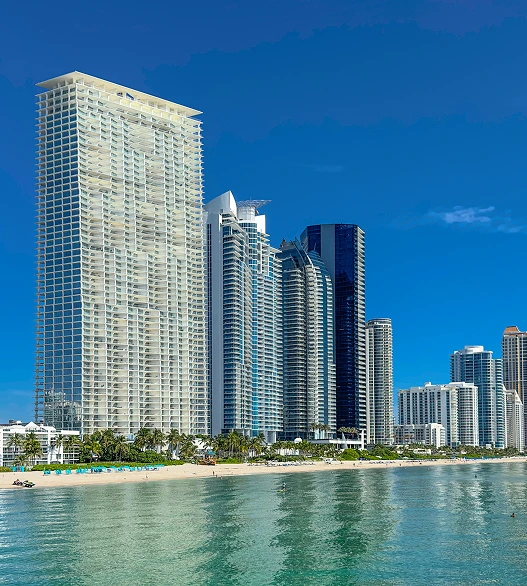Many patients who have had gastric bypass surgery face concerns like persistent discomfort, inadequate weight loss, or weight regain over time. If you are struggling with these issues or complications from your initial procedure, a bariatric revision may be the solution. At Miami VIP Surgery, we provide expert care to help you regain control of your health and improve your quality of life.
Bariatric revision is a specialized procedure designed to correct or improve the results of a previous weight loss surgery. It is often recommended for patients who have experienced complications, such as a stretched gastric sleeve or bypass outlet, or for those who have not achieved their desired outcomes.
Dr. Keshavarzi frequently sees patients whose initial procedures, whether a Sleeve, ESG, or Bypass, were not performed with the necessary precision or have evolved over time. The goal of a revision is to address these anatomical issues and restore the effectiveness of the original surgery, ensuring you finally reach your health goals.

We provide a full spectrum of bariatric revision options tailored to your unique surgical history and weight loss goals. Whether you need a Sleeve or ESG revision, a Bypass revision, or a specialized Orbera balloon removal following a procedure performed elsewhere, our focus is on precision and long-term success. These corrective techniques allow us to address anatomical changes or sub-optimal initial outcomes without the need for traditional surgery, effectively restoring the restriction necessary for sustained weight loss. By performing these procedures endoscopically through the mouth, we eliminate the need for external incisions, which results in less physical discomfort and a much faster recovery time than traditional revisional surgery. This expert-led approach ensures that patients who were disappointed by previous results can finally achieve a safe and permanent solution.
Preparation for bariatric revision begins with a thorough consultation during which our surgical team carefully evaluates the patient’s medical history, current health, and previous surgery outcomes. This process includes a detailed review of diagnostic tests and imaging to understand the anatomy and identify any complications. Establishing a clear connection between the patient’s goals and the surgical plan is essential to ensure the best possible outcome. Proper preparation also involves nutritional counseling and lifestyle assessment to optimize the patient’s condition before the procedure.

Before the TORe procedure, patients undergo a comprehensive evaluation to assess their current gastric anatomy and overall health status. This includes endoscopic examination and imaging studies to determine the size of the gastric pouch and the degree of enlargement of the gastric outlet. The evaluation ensures that TORe is an appropriate option and helps tailor the procedure to the patient’s specific needs.
TORe is performed under general anesthesia to ensure patient comfort and safety throughout the procedure. Once sedated, the patient is carefully positioned to provide optimal access for the endoscopic instruments used during the procedure.
The procedure begins with the insertion of a flexible endoscope through the mouth, passing down the esophagus and into the stomach. This allows our surgeon to visualize the gastric pouch and the outlet, identifying areas that have stretched or enlarged since the original gastric bypass.
Using specialized endoscopic suturing devices, our surgeon reduces the size of the gastric outlet by placing precise sutures with precision. This tightening helps restore the restrictive effect of the gastric pouch, limiting the passage of food and promoting a feeling of fullness. The sutures are carefully placed to ensure durability and effectiveness without compromising the surrounding tissue.
After the sutures are placed, a final endoscopic inspection confirms the reduction in the size of the gastric pouch outlet and the overall integrity of the repair. The endoscope is then carefully withdrawn, marking the completion of the procedure. This minimally invasive approach allows for correction of the outlet size without the need for external incisions or extensive surgical disruption.
Patients return home the same day after the TORe procedure, as it is minimally invasive and does not require an overnight hospital stay. During this period, mild throat discomfort or bloating may occur, but serious complications are rare. The body begins healing immediately, and patients are advised to start with clear liquids to avoid stressing the gastric pouch and sutures. Proper food choices during this time are crucial to prevent complications that could compromise the procedure's success.
In the first week, patients follow a carefully controlled liquid diet to protect the healing gastric pouch and avoid placing stress on the sutures. This period is critical because improper food intake or overeating can cause the repair to fail. Patients may experience mild fatigue as the body continues to recover, but most can resume light daily activities by the end of this week.
During weeks 2 to 4, the diet gradually progresses from liquids to soft foods under medical supervision. The body adapts to the new restrictive size of the gastric pouch, which helps reduce hunger and supports continued weight loss. It is essential to avoid behaviors that can lead to weight gain, such as consuming high-calorie or easily digestible foods, to maintain the benefits of the revision.
Beyond the first month, patients typically transition to a balanced, nutrient-rich diet aligned with their weight management goals. Regular follow-up appointments help monitor progress and address any concerns that may arise. Sustaining the effects of the TORe procedure requires ongoing commitment, as failure to adhere to dietary and lifestyle recommendations may result in weight gain or reduced effectiveness of the revision.

For those who may not qualify or choose not to undergo a second procedure, our practice provides exceptional medical weight loss options. These alternatives are designed to support individuals in achieving and maintaining a healthy weight through personalized strategies and guidance.
Your journey to a healthier, more fulfilling life begins with a complimentary consultation with Dr. Reza Keshavarzi. Take the first step towards reclaiming your health and confidence by scheduling your consultation today at 786-801-3883 .
Patients seek bariatric revision for many reasons related to their health and weight management journey. Candidates for this procedure typically include individuals facing challenges after their initial surgery and those looking for further support to lose weight or address complications.

After undergoing a revisional weight loss surgery, patients often experience a range of positive outcomes that contribute to improved health and quality of life. The TORe procedure addresses specific challenges that may arise after the initial surgery, providing patients with renewed motivation to continue their weight loss journey.
The cost of bariatric revision in Miami typically ranges from $15,000 to $30,000. While price is a factor, the complexity of revision surgery makes the expertise of your surgeon the most important investment. Revisions require navigating scar tissue and altered anatomy from a previous doctor's work. At Miami VIP Surgery, we focus on getting it right this time so that this is the final step in your weight loss journey.

Trust Dr. Reza Keshavarzi’s Expertise
When a previous weight loss surgery fails to meet expectations, it is often due to the technique used or the lack of specialized follow-up care. Dr. Reza Keshavarzi is a distinguished bariatric surgeon renowned for his expertise in complex revisions. He specializes in corrective surgery by taking on cases where the initial procedure was not done correctly or led to complications.
By choosing a fellowship trained expert for your revision, you are prioritizing safety and long term success. Dr. Keshavarzi begins every revision with a comprehensive evaluation such as an EGD to understand exactly what went wrong elsewhere and how to fix it permanently. Our focus is on providing the high quality care you should have received the first time.

Common reasons include insufficient weight loss, weight regain after initial success, complications such as stomach stretching or leakage, persistent acid reflux, or anatomical changes that affect the efficacy of the initial procedure.
As with any surgical procedure, there are potential risks, including infection, bleeding, complications related to anesthesia, and the possibility of additional complications specific to revision surgery. Our qualified bariatric surgeon will discuss the risks and benefits of the procedure with the patient before the operation.
Success rates vary among individuals and depend on various factors, including the patient’s commitment to lifestyle changes, their health condition, and the specifics of the revision surgery. It’s crucial to follow post-operative guidelines and maintain a healthy lifestyle for optimal results.
If a patient is not eligible for or chooses not to undergo revision surgery, there are often medical weight loss options available. These alternatives may include dietary counseling, lifestyle modifications, medication, or other non-surgical interventions to support weight management.
The best way to determine if a gastric sleeve revision is suitable for your situation is to consult with a qualified bariatric surgeon experienced in revision procedures. They will assess your individual circumstances and provide guidance on the most appropriate course of action based on your needs and health goals.
Bariatric revision can be more effective than gastric band surgery and sleeve gastrectomy for certain patients, as it directly alters both the stomach size and the small intestine, thereby helping to reduce calorie absorption and restrict food intake. Unlike some procedures that may require open surgery, many bariatric revision , including advanced techniques like TORe, are minimally invasive. However, the effectiveness varies depending on individual factors and the specific revision performed.
Revisional bariatric surgery carries a higher risk of complications compared to primary procedures due to the complexity of operating on altered anatomy. Patients may face a higher likelihood of challenges during surgery due to the following conditions: scar tissue, changes in blood supply, and previous surgical modifications. Nevertheless, careful patient selection and our experienced surgical team help minimize these risks and improve outcomes.
Remember, this FAQ provides general information and should not replace personalized medical advice. Consultation with a qualified bariatric surgeon is essential for accurate evaluation and guidance tailored to individual needs.